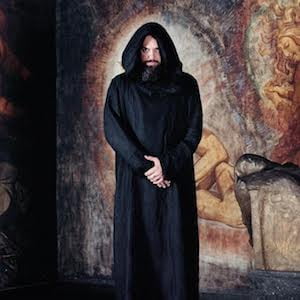I've always been kind of a music freak. My first foray into "non-mainstream music" came in seventh grade. I was in some sort of special math program where I was bumped up a grade into the eighth grade advanced math class. At the time, bands like The Offspring and The Mighty Bosstones were popular on alternative radio, and I loved alternative radio. I begged my mother to allow me to put a Q101 sticker on her car, and she was like "absolutely not."
One of the eighth graders in my math class (Justin K was his name) somehow found out that I was enthralled with the ska and punk bands nudging at mainstream success, and he suggested that I check out Less Than Jake. I went to Beautiful Day, the local record store, and purchased "Losing Streak." I was completely blown away that a band could be so good without being on the radio, and my life changed in that moment.
Justin gave me other recommendations including Operation Ivy and Slapstick, and within months I had ordered pretty much everything from the Asian Man Records catalog.
From this point forward, I became a music freak – obsessively researching bands and genres and getting my ears on anything that I could find. This was in the advent of file-sharing, so I used Napster, Kaazaa, album thank you lists, John Peel playlists, and recommendations for charismatic and borderline cyber-bullying internet forum users.
At some point, as an older, darker, more depressed teen with a taste for heavy metal, I stumbled into the music of Stephen O'Malley and Greg Anderson. This was probably a year or so after Sunn O)))'s "Flight of the Behemoth" came out. I quickly started back-tracking and checking out all of their other slow and bizarre projects, and I had a particular taste for Khanate and Burning Witch. At the time, I was familiar with Black Sabbath and a bunch of technical death metal and metalcore bands, but had pretty much no knowledge of doom metal. The idea of contemporary bands purposefully playing slow and non-technical riffs was insane and mind-blowing to me.
I also came across Thorr's Hammer a few years later while searching for bands influenced by Celtic Frost, and only later learned that the same slow-playing weirdos Greg and Stephen were responsible for that band as well.
Recently, my band Like Rats released an album on Greg's label Southern Lord Records. To have a person who unknowingly shaped your development and opinion of music put his name (and some of his own $) behind your project makes me feel a little bit weird if I actually think about it.
Greg graciously agreed to take some of his time to discuss his own creative process – and how this differs between his bands, how he built a tribe of like-minded people who want to hear whatever he puts out with his label or with his bands, and how he thinks about marketing and growing his business in a subculture that frowns heavily upon any sort of calculated or disingenuous salesy bullshit.
Even though this post and podcast are appearing on a gym's site, I considered myself a musician long before I considered myself a coach, so I think it's valuable to dig into the same mindsets and processes that we look for in elite coaches, athletes and therapists in areas outside of fitness. Just one insight gleaned from another industry or field can be game-changing when applied in an arena like coaching or performance.
Listen Here
- iTunes
- Overcast
- Google Play
- mp3
- Or stream here:
Learn More About Greg and Southern Lord Records
- Website: Southern Lord Records & Southern Lord Bandcamp
- Facebook: SLadmin
- Instagram: @southernlordrecords
- Twitter: @twatterlord
Show Notes
- [0:17] Introduction of Greg Anderson
- [2:50] How do you create the music?
- [6:08] How do you have quality control of what you release?
- [13:42] During the editing process, is there one lead creative voice or is it a collaborative process?
- [17:33] A basic history of Southern Lord
- [28:46] How do you approach marketing without crossing a line you don't agree with?
- [33:46] Do you do anything to create a following with the music you want to hear?
- [36:44] A story about Scott Walker
- [46:47] More information on Southern Lord and Greg's bands
Resources Mentioned
- Greg Anderson's extensive discography on Metal Archives
- Stream the new Like Rats album "II"
- Stream Goatsnake's latest release "Black Age Blues"
- Stream Sunn O)))'s latest release "Kannon"
- Purchase physical copies of any of Southern Lord's releases
- Check out the music video for "Brando" off of Scott Walker & Sunn O)))'s collaboration album "Soused"






